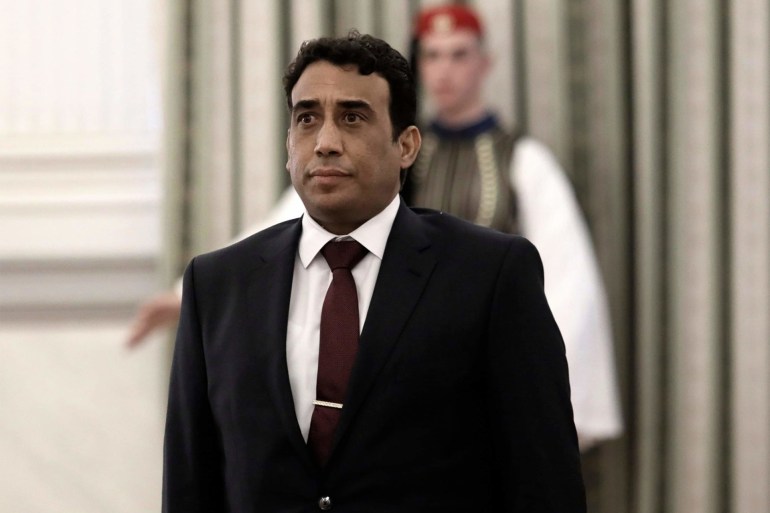US Secretary of State Anthony Blinken discussed, in a phone call with the head of the interim Libyan government, Abdel Hamid Dabaiba, the need to fully implement the ceasefire agreement, including the removal of all foreign forces and mercenaries from the country without delay.
In its statement, the State Department said that the Minister and Dabaiba stressed the importance of ending the conflict through an inclusive political process, providing basic public services, and ensuring free, fair and credible elections on December 24th.
The State Department pointed out that Blinken welcomed the formation of the new interim national unity government.
Dabaiba takes over his duties shortly before (Anatolia)
Geneva outputs
For his part, President of the Presidency Council, Mohamed Al-Manfi, affirmed the commitment of the new executive authority to the Geneva outcomes, in terms of supporting comprehensive national reconciliation, seeking to unify state institutions, and following up on the work of the Joint Military Committee.
This came during an exiled meeting in Tripoli of Jan Kubis, the UN Secretary-General's envoy and the head of its mission in Libya, and the UN Assistant Secretary-General, the mission coordinator, Rizden Zinga, according to a statement by the Presidential Council.
During the meeting, Kubis said that the United Nations and its mission support stability in Libya and the political solution that the Geneva dialogues ended in reaching fair elections on December 24, according to the statement.
He stressed support for all efforts to unify all sovereign institutions, and support for the "5 + 5" joint military committee.
This committee includes 5 members from the internationally recognized government, as well as retired Major General Khalifa Haftar.
Al-Manfi confirmed support for comprehensive national reconciliation (communication sites)
Political breakthrough
For a while, the crisis has witnessed a political breakthrough, after years of armed conflict in this oil-rich country, which resulted in civilian casualties and massive material damage.
On February 5, the Libyan Political Dialogue Forum in Geneva, under the auspices of the United Nations, elected a new executive authority, including a presidential council and a national unity government, to lead the country until parliamentary and presidential elections are held.
Officially, both exiled and Dabaiba assumed their duties on March 16.

